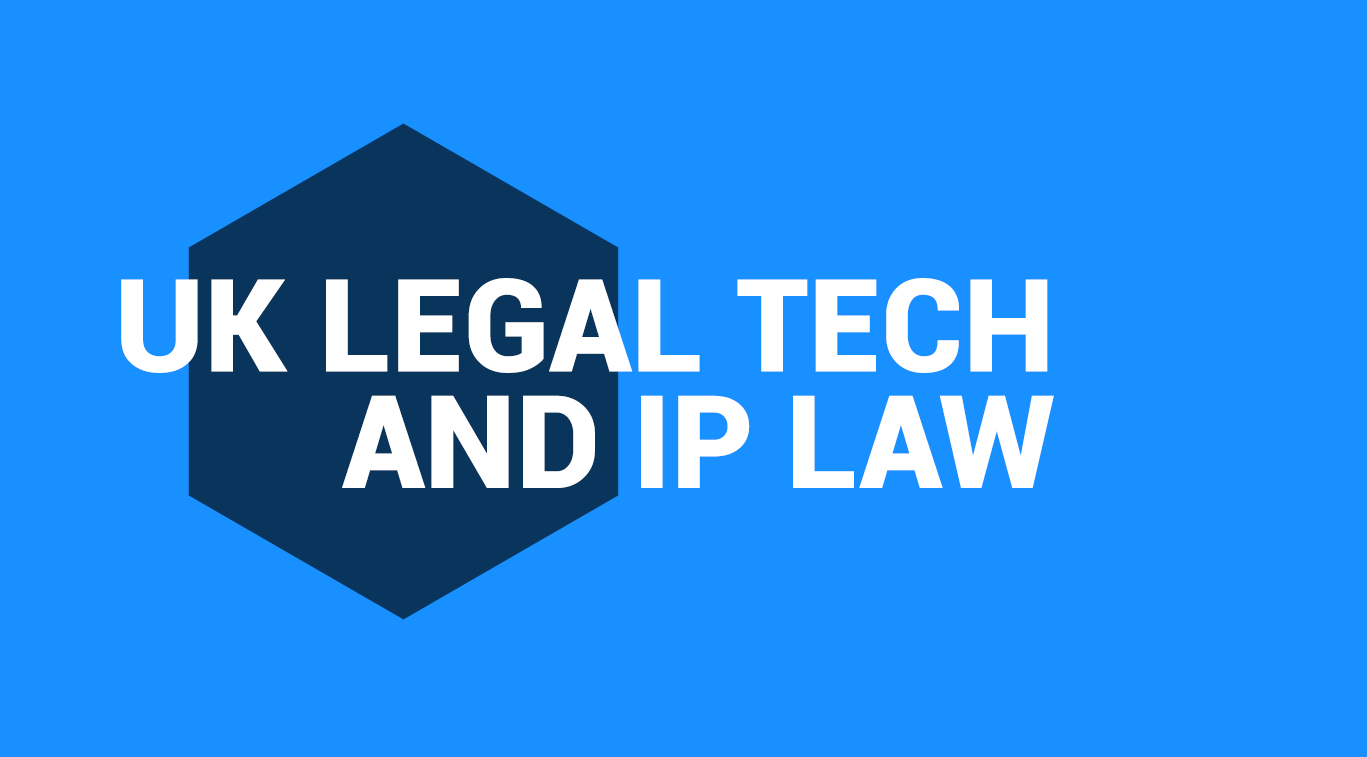UK Legal Tech and IP Law
Technology legislation within the realm of intellectual property

Written by Fatima Freifer
Blogger

In the modern day, information technology and intellectual property infiltrate practically every domain. Some of the factors encountered include the fate of law in the information age, as well as the management and exploitation of various forms of creativity, reputation and legal tech innovation in the digital age.
In light of recent events in the digital sphere [1] such as the introduction of a digital and non-tangible entity such as Metaverse coming to the fore, the discussion of Intellectual Property has become an important one. Globalisation and increased internet access have pushed information technology and intellectual property issues to the forefront of commercial activity and corporate decision-making as well as business intelligence for law firms.
So far, in the fourth industrial revolution, the traditional concepts of copyright and confidentiality have held up reasonably well to software and data. However, the legal sector has undergone some of the most significant changes in decades, owing to a variety of factors such as technological advancements [2] and client demand. There is no doubt that the last two years have hastened this shift even further and accentuated the impact of technology on legal services.
Intellectual Property Law
Intellectual property law governs the creation and protection of intellectual creations such as inventions, designs, brands, artwork and music.
Patents (usually for technical inventions), trademarks (for goods and services), copyright (music, art and literature) and designs are used to establish, protect, enforce and promote these rights (products and logos).
Intangible assets include intellectual property (IP). Although intellectual property is not physical, patents, trademarks and copyrights can all add value to a company.
However, whenever a company introduces something new to the world, there is a chance that it will be copied. The internet amplifies this risk by making it easier to steal unique IP addresses.
The primary intellectual property rights in relation to technology (primarily software and data) are copyright, database rights, confidentiality and trade secrets. Patents and rights to invention apply to software and business processes that manipulate and process data, but not to the data itself. Trademarks can be applied to software, data and other technological products. Legal software tools serve to facilitate this process.
The UK Court of Appeal recently confirmed that a machine is not an inventor under the UK Patents Act 1977. [3] However, the underlying copyright and patent positions on ownership of computer-generated works (which will vary from country to country because IP rights are essentially national) are sufficiently ambiguous that express contract terms should be used to regulate the parties’ positions.
The IPO is considering alternatives to developing a specific IP right in relation to AI-devised inventions. These include amending UK patent law to include humans responsible for an AI system devising inventions within the concept of a ‘inventor,’ or changing the legislation to allow patent applications to identify AI systems as an inventor, which serves to further expand the reach of UK legal tech within this domain as well as UK law firms using artificial intelligence.
Copyright Safeguards for Digital Works
In the United Kingdom, copyright currently protects original literary, dramatic, musical and artistic works generated by a computer in the absence of a human creator for a period of 50 years from the date the work is created.
The UK position [4] is unusual and has been criticised on the grounds that copyright (indeed, any IP right) imposes a cost on third parties and that computers do not require a reward or an incentive to produce original content, so the cost imposed on third parties is unjustified. The UK position has also been criticised because the legal test of “originality” cannot easily be applied to computers because it is based on human characteristics such as personality, judgement and skill.
In terms of UK legislation [5] and consultations, one of the most interesting developments is the Intellectual Property Office’s (IPO) consultation, which was launched on 29 October 2021, on policy options for changes to patent and copyright legislation to better protect artificial intelligence-created technology [6] Among the options proposed by the IPO were:
- Copyright protection for computer-generated works is being removed.
- The current protection for those works is being replaced with a new right with a narrower scope and duration. Computer-generated works are currently protected for 50 years from the date of creation.
- Extending the existing copyright exception for text and data mining (TDM) in Section 29A of the Copyright, Designs and Patents Act 1988 (CDPA) to commercial research and databases [7].
In response to a report on the economics of music streaming published in July 2021 by the House of Commons Digital, Culture, Media and Sport (DCMS) Committee, reforms in relation to fair remuneration in exploitation contracts of authors and performers could potentially be implemented in the UK in due course.
In autumn 2021, the UK government held a consultation on its plans for a new pro-competition regime for digital markets. These are centred on a larger role for the main Competition and Markets Authority’s Digital Markets Unit [8] in regulating digital businesses with strategic market status (‘SMS’). SMS designation will result in a special merger control regime and compliance with the code of conduct. This legislation will be implemented in 2022, but the CMA’s £50.5 million fine imposed on Facebook in October 2021 for its acquisition of video file search engine Giphy in 2020 appears to herald a more robust UK regulatory approach.
The United Kingdom also safeguards database investments [9]. Database rights last for 15 years and protect the contents of a database. A database does not have to be unique in order to be eligible for database rights. However, a significant investment must have been made in obtaining, verifying, or presenting the data. If AI generates a database that meets these criteria, it is possible that a database right is associated with it. Current law firm database software is cognisant with this set up, employing the use of high tech document management systems and company law compliance software.
Conclusion
Over the next few years, it is clear that the increasing pace of technological development and profound leaps in terms of impact of AI in the legal profession and will continue to challenge existing IP concepts and principles. [10]
Organisations that contractually specify permissions and restrictions reduce the likelihood of disputes by bringing clarity to complex questions and grey areas. It is also crucial for both creators and consumers: rightsholders will be able to leverage their content to potentially generate new revenue streams, while consumers will have clear rules of engagement regarding what they can and cannot do.
References
[1] UK Government Scrutiny of Social Media, Fatima Freifer, https://goodlawsoftware.co.uk/uk-government-scrutiny-of-social-media
[3] The Patents Act 1977, Intellectual Property Office, Dec 2007, https://www.gov.uk/government/publications/the-patents-act-1977
[4] Britain’s Trajectory as a testing nation, Fatima Freifer, https://goodlawsoftware.co.uk/britains-trajectory-as-a-testing-nation
[5] Key British Legal Terminology and its Etymology, Fatima Freifer, https://goodlawsoftware.co.uk/key-british-legal-terminology-and-its-etymology
[6] How Legal Tech Will Shape Up The Law Industry, Fatima Freifer https://goodlawsoftware.co.uk/how-legal-tech-will-shape-up-the-law-industry
[7] Copyright, Designs and Patents Act 1988, Section 29, Legislation Gov, https://www.legislation.gov.uk/ukpga/1988/48/section/29
[8] Digital Markets Unit, April 2021, https://www.gov.uk/government/collections/digital-markets-unit
[9] Business investment real-time database, ONS, December 2021
https://www.ons.gov.uk/economy/grossdomesticproductgdp/datasets/businessinvestmentrealtimed
[10] IP Basics, Gov UK, 4 January 2022 https://www.gov.uk/government/publications/ip-basics/ip-basics








